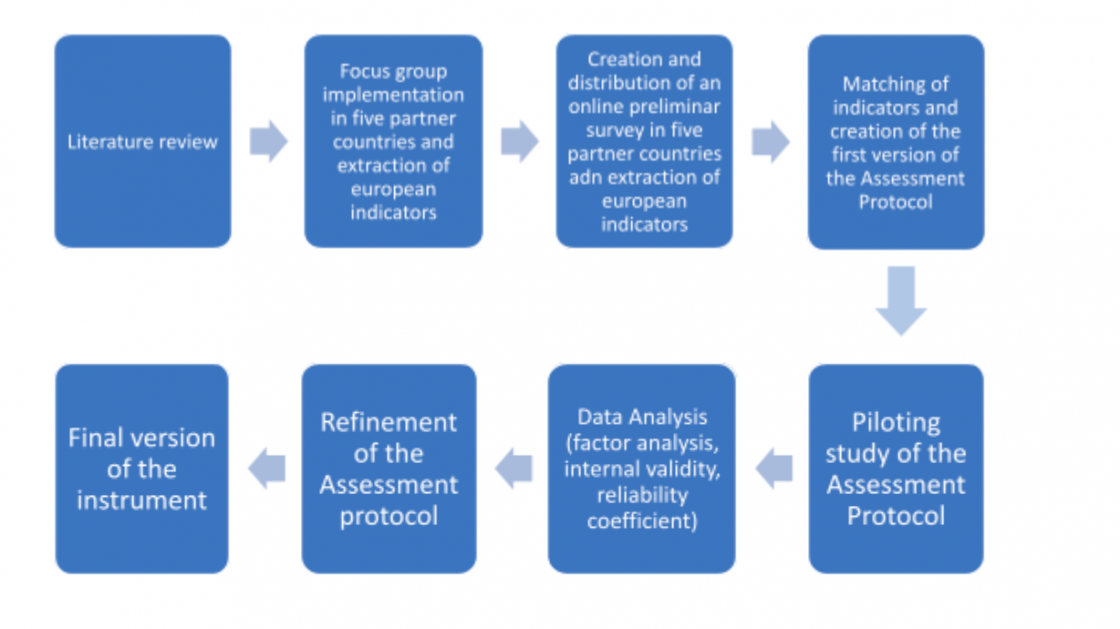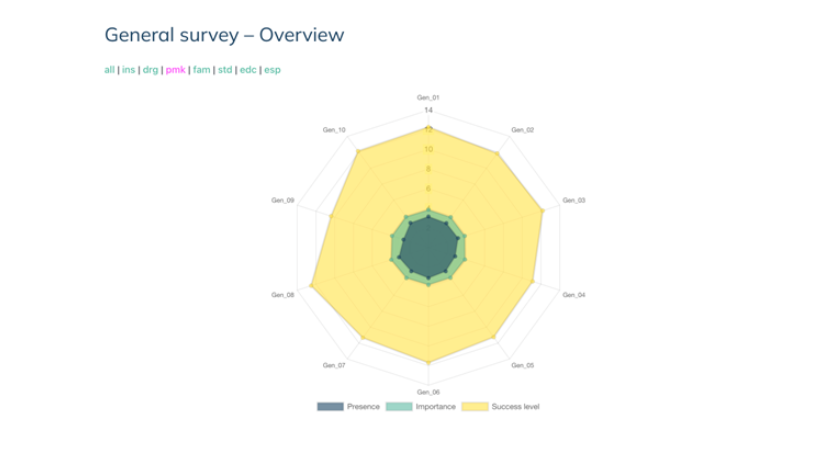Report on Algorithm development phases

The main aim of ECO-IN project is to development of an innovative, digitalized, and multi-language system, based on a specific, reliable, and valid algorithm-based scoring system for new ecological approaches on inclusion and for assessing and monitoring the processes of inclusive education carried out by the different target groups and in different countries. We have conducted several rigorous steps, synthesised in the figure below, to create, test and validate our instrument.

The instrument is composed of ten general items common to all the target groups and seven items specific for each target group (teachers, students, principals, experts, parents, policymakers). Each item has two levels of analysis and therefore a double formulation: one aims at investigating the importance for the responders of something concerning the inclusiveness of the school and the other one aims at investigating the presence of something (specific or general) which contributes to make the school inclusive.
Here an example:
General item
| IMPORTANCE | PRESENCE |
| It is important to establish relations with public bodies and agencies in the territory involved in the inclusion process? | Relations with public bodies and agencies in the territory involved in the inclusion process are established? |
Specific item (teachers)
| IMPORTANCE | PRESENCE |
| It is important to involve families, students, and stakeholders in the territory in the definition of projects aimed at inclusion? | Families, students, and stakeholders in the territory are involved in the definition of projects aimed at inclusion? |
The collaboration with Andrea Mangiatordi from the University of Milan-Bicocca was successful: he has created an online platform in which test the instrument through a very helpful and easy to use system. The platform allowed target groups to complete the survey to test the Assessment Protocol, verify the origin countries of the answers and download the results in order to proceed with the data analysis.

